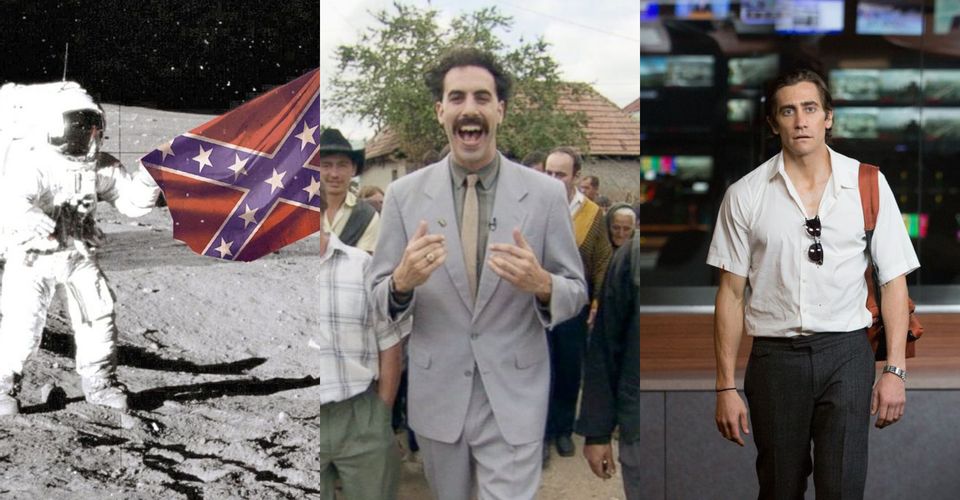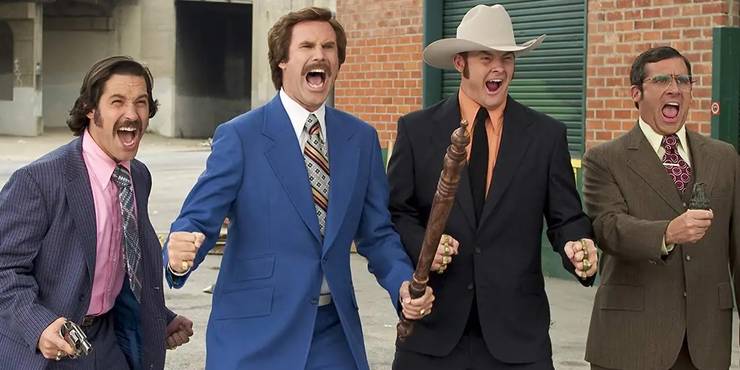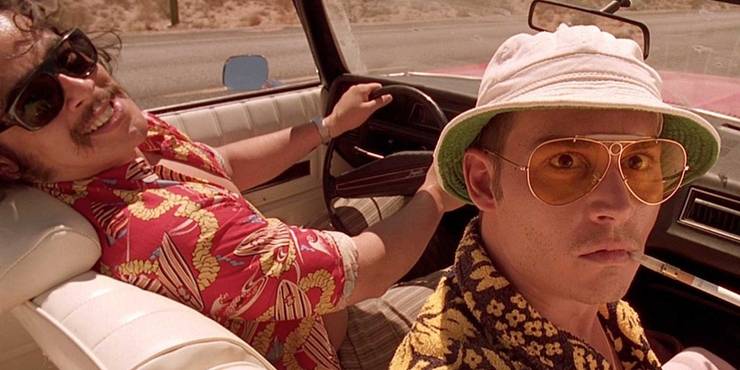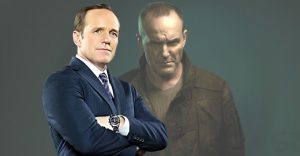10 Films To Watch If You Liked Borat

Borat is a 2006 mockumentary starring Sacha Baron Cohen as a journalist of the same name. The film finds Borat and his crew living in an inaccurately fictional representation of Kazakhstan and covers their misadventures in America. For its political undertones, unapologetic raunchiness, and improvisational filmmaking style, Borat sparked a lot of controversy, while quickly gaining a cult following. And now, Borat has returned in a highly-anticipated sequel.
From his very first journey, Borat represented hard-hitting socio-political humor disguised as senseless comedy. The film is definitely a fine exercise in the genres of satire and mockumentary.
10 Anchorman: The Legend Of Ron Burgundy (2004)

Adam McKay’s Anchorman might not have aged that finely over the years, but it’s still a delightful commentary on the rampant sexism that exists (and still exists) in corporate workplaces. The confident, “masculine” crew of a local news network find their fragile egos to be threatened when a new star reporter turns out to be a woman.
With several nefarious schemes and derogatory remarks, the reporters plan to boo away the new recruit, only to see her rise with every passing day. The film boasts several quotable lines and a stellar lead performance by Will Ferrell, whose Ron Burgundy character is probably the most iconic fictional journalist, other than Borat.
9 Nightcrawler (2014)

To what extent can a journalist go to get a scoop-worthy story? Nightcrawler tends to ask such questions while exploring the dark world of a crime reporter. Jake Gyllenhaal menacingly plays an aspiring videographer who devises his own method of finding crime scenes, even before the police. This allows him to record visceral real-time footage of real crimes and sell the footage to networks at a high price.
It turns out to be a good business model until the dark nature of his works strips him of his empathy and humanity. Gyllenhaal gets into the skin of the paranoid, nocturnal ‘Nightcrawler,’ as viewers get a glimpse of the dark, power-hungry dynamics of TV channels.
8 Idiocracy (2006)

Mike Judge’s satirical venture went unnoticed with audiences, largely misinterpreting it as a goofy comedy. However, over the years, there has been a resurgence in understanding the genius elements in Idiocracy. The basic plot deals with a man from the present waking up to the America of the distant future.
Judge’s dystopian vision presents the world and America as a civilization that has undergone a “reverse evolution” of sorts. The president is a sadistic, gun-wielding movie star, while the general populace speaks in gibberish and farms the soil with Gatorade. Despite its over-the-top stupidity, Idiocracy has been interpreted as a warning sign for the present generation to make conscious choices, both personal and electoral.
7 The Dictator (2012)

A favorite among fans of Sacha Baron Cohen’s work, The Dictator finds the humorist play Admiral-General Aladeen, a parody of authoritarian, narcissistic dictators. While Aladeen’s people suffer, he engages in the highest material pleasures until his own confidante betrays him. Desperate to survive, he adopts a new identity in America, where he must give up his sexist and racist upbringing.
The movie offers several scenes of comedy gold, as viewers see Aladeen mature and adjust to a life he never dreamt of. As always, the raunchiness and goofiness of Baron Cohen’s antics are always followed by darkly real observations of the current world.
6 Fear And Loathing In Las Vegas (1998)

Johnny Depp plays journalist Hunter S. Thompson in this larger-than-life surreal experience of a film, directed by Terry Gilliam, who’s known to experiment with bizarre concepts. Fear and Loathing in Las Vegas is pretty much about Thompson covering a motor race in Vegas, under the influence of heavy drugs.
However, it’s the execution of the writer’s drug-fueled episodes that make for quite an engaging watch (even though it might be too “trippy” for some). The real story behind the memoir that inspired the film is fascinating in itself, as Thompson pioneered the gonzo style of journalism. Gonzo pieces are often written in a wild, exaggerated manner from the first person point of view, blurring the line between fact and fiction.
5 Bob Roberts (1992)

Bob Roberts is written, directed by, and stars Tim Robbins as the titular character, a role he reprised from his skits on SNL. Roberts is a millionaire conservative who plans to go against an incumbent senator. Rather than speeches or campaigns, Roberts’ strategy is to sing 60s-style songs that evoke far-right themes on the society and the economy.
Shot in a mockumentary fashion, the film offers a glaring perspective into propaganda and its usage in modern-day politics. As a side plot, there’s also an investigative journalist tailing Roberts to find a connection between him and a drug deal. And to tick all boxes of a political film, there’s also an assassination plot thrown in the mix.
4 Vice (2018)

From Anchorman to Vice, writer-director Adam McKay has matured a lot in terms of his political satire. Vice is an unconventional take on the life of former American Vice President Dick Cheney and his handling of the “War on Terror.” Filled with meta-elements, exaggerated accounts, and deadpan humor, Vice touches upon some uncomfortable truths to show how even leaders in a democracy can turn authoritarian, creating irreversible damages.
Layered in makeup and extra weight, Christian Bale delivers one of the best performances of his career, playing the so-called “Vice” with rawness and brutal ruthlessness.
3 The Great Dictator (1940)

Charlie Chaplin has never shied away from showing socio-economic issues in his silent films, but in his first talkie, he takes the satire up a notch. Chaplin plays a parody of Hitler, complete with the mustache and oratory prowess, with enough slapstick humor to make The Great Dictator a family-friendly watch.
But as mature viewers would note, Chaplin’s dialogues (especially in the final speech) critique not just Nazi ideology, but any leadership and ideology that promotes hatred and intolerance. The film is a bold example of political cinema, in rousing the public to speak against any unjust system before it’s too late.
2 C.S.A.: The Confederate States Of America (2004)

C.S.A deals with an alternate history in which the Confederacy wins the American Civil War, colonizing parts of the Caribbean and South America, leading to a highly undemocratic and discriminatory regime in present times. The mockumentary also draws parallels with the actual realities and the discriminatory nature that still persists in modern American politics, implying that the Confederate bent of mind might still persist in the real world.
With such subtle comparisons between real history and the pseudo-history that the film touches on, C.S.A. makes for quite an introspective watch.
1 Borat Subsequent Moviefilm (2020)

Borat‘s sequel finds the reporter visit America during the Trump regime and the coronavirus pandemic, with his daughter joining him this time. Compared to its predecessor, Borat Subsequent Moviefilm gets even more direct with its political jabs at American society.
The improv-style of making the film gets thrilling, as well as disturbing, with scenes shot at actual right-wing gatherings, a rally for Mike Pence, and a darkly real encounter in the third act. Definitely one of its kind, this Borat film seems to be bridging the gap between cinema and investigative journalism.
About The Author


















